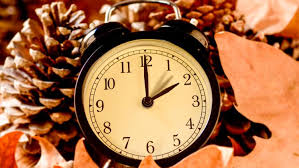Get ready to adjust your clocks and perhaps your sleep schedules! Daylight Saving Time, that annual tradition of shifting our clocks forward and back, is once again on the horizon for 2025. While it might seem like a simple hour adjustment, the change often sparks conversations about sleep, daily routines, and even its overall purpose. So, when exactly will we be 'falling back' next year, and what does it mean for your schedule?
The Big Reveal: When to “Fall Back” in 2025
Mark your calendars! In 2025, Daylight Saving Time is set to end on Sunday, November 2nd. On this day, at 2:00 AM local time, clocks will 'fall back' one hour to 1:00 AM. This means for most of us, we'll gain an extra hour of sleep that morning, a small silver lining to the darker evenings that follow.
Understanding the Daylight Saving Shift
The 'fall back' transition marks the end of Daylight Saving Time, signaling a return to standard time. While many enjoy the initial benefit of an extra hour in bed, it also means that the sun will set earlier in the evening. This shift can impact everything from commuting in the dark to adapting children's sleep patterns, making the discussion around DST a recurring topic of interest across the nation.
Why the Buzz Around Daylight Saving Time?
The debate surrounding Daylight Saving Time is as perennial as the clock changes themselves. Proponents often cite potential energy savings or increased daylight for evening activities during warmer months. However, critics point to studies suggesting adverse health effects due to sleep disruption, economic impacts, and the sheer inconvenience of the biannual time change. While the conversation about making Daylight Saving Time permanent or abolishing it altogether continues in legislative halls, for now, we remain on the clock-changing schedule.
Preparing for the Change
As November 2, 2025, approaches, it's a good idea to prepare for the time shift. Most digital devices, like smartphones and computers, will automatically update their time. However, don't forget to manually adjust any analog clocks, microwaves, or car clocks. Giving yourself a few days to adjust your sleep schedule gradually can also help ease the transition and minimize any disruptions to your routine. Whether you love it or loathe it, Daylight Saving Time is an event that affects millions, and knowing when it happens helps us all navigate the shift a little more smoothly.
Sources
- https://www.9news.com/article/news/nation-world/daylight-saving-time-2025-when-do-clocks-change/507-faf3d622-6e55-4ad1-8bfc-8abf1802a079
- https://www.usatoday.com/story/news/nation/2025/10/06/daylight-saving-time-2025/86485603007/
- https://www.commercialappeal.com/story/news/2025/10/06/daylight-saving-time-date-when-fall-back/85529547007/




